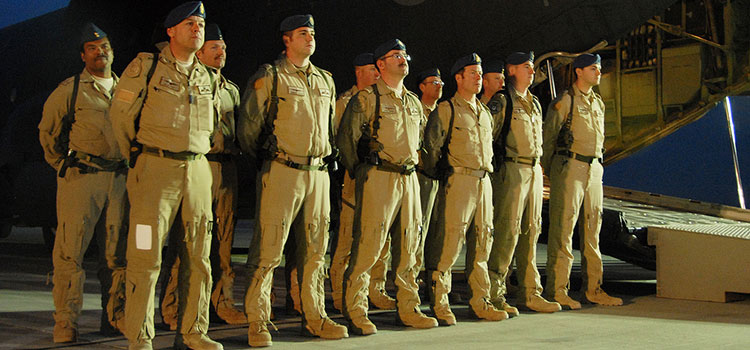As per Health Canada’s Marijuana for Medical Purposes Regulations established in 2001, patients across Canada suffering from certain debilitating conditions can be prescribed medical cannabis. If they register with a licensed producer, they can purchase said cannabis. Veterans returning from war are sometimes prescribed cannabis to treat symptoms of PTSD — the Canadian Veterans Affairs actually covers the cost of the medicine — but the healing process often requires more than just access to the plant itself.
Marijuana for Trauma Inc. (MFT) is one group working hard to improve Canadian veterans’ access to medical cannabis. This New Brunswick-based nonprofit serves veterans seeking medical cannabis throughout Canada. Fabian Henry, the founder of Marijuana for Trauma and a veteran combat engineer who suffers from PTSD himself, said, “The goal of MFT is to help veterans completely integrate cannabis into their lives. We don’t look at it as a short term treatment. After Veterans go through our program, they are ready to work more on their underlying medical problems.”
“We’ve sadly lost six veterans who were in our program,” said Henry, who uses cannabis to treat his PTSD symptoms. “They either didn’t get cannabis quick enough, or went off it, and back on to pharmaceuticals.” MTF also helps vets navigate the sometimes-confusing maze that is the Veterans Affairs approval process. All of their services are free, but the organization happily accepts donations.
The group, which has five locations and currently serves about 1,000 veterans, is using a three-phase approach:
The first phase involves getting veterans off of pharmaceuticals, coupled with getting them access to cannabis as quickly as possible. The second phase begins to incorporate other therapies such as neuro-feedback and hyperbolic-oxygen therapy to help treat traumatic brain injuries; during this phase, enrolled patients also mobilized into peer support groups, given general cannabis education, and are offered help obtaining equipment to facilitate safe cannabis consumption, such as vaporizers and canna-cooking equipment. The third and final phase, which is coming up soon, will include a thirty-day nature retreat involving sweat lodges.
According to Dr. Darrell Hudson, a molecular biologist and geneticist who has worked with MTF, developing strains effective for treating PTSD since 2013:
“These veterans were trained to be on guard and quick-reacting, which rewired the brain to be in a constant state of stress. Add on top of that the stress, and images, of war, and these folks can really have problems. By using cannabis, such as certain high THC strains bred from the Kush family, veterans are able to interrupt the stress pattern in their brain. It acts like a reset switch.”
Fabian hopes the newly-elected Canadian government will soon loosen recently-passed restrictions on medical cannabis.
Photo Credit: ResoluteSupportMedia
